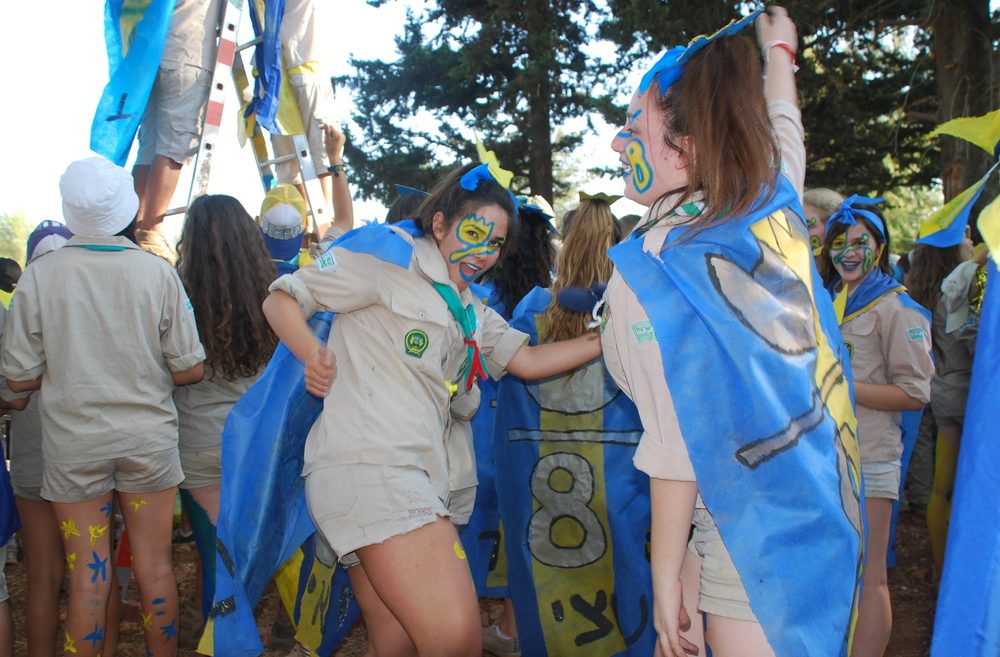When you think of yourself at age 15, what’s the first thing that comes to mind? Or better yet, if you have a 15-year-old at home — like I do — how would you best describe him or her?
I have to admit I found an entire range of relevant adjectives, varying from “crazy,” “inspiring,” “funny” and “deep” to “irresponsible” and “committed.” How can these terms all be relevant to a single individual?
In Israel, there is a unique expression referring to youths ages 12 to 18: “the stupid age” (in Hebrew, tipesh esre). They are never called “youth” or “teens” and rarely are they denoted as “adolescents.” A person who is, say, 15 years old, belongs to the “stupid age.” That’s it.
Teenagers around the world generally experience the same challenges. However, the way societies refer to this age and its assigned role varies from place to place.
Brown B. Bradford, author of The World’s Youth: Adolescence in Eight Regions of the World, wrote that “one can learn a lot about the nature of adolescence in a given culture simply from the way it is defined.”
Many cultures do not even have a term defining the period of adolescence, which suggests that those cultures do not regard it as a distinct or important stage in a person’s life. “Until recently,” writes Bradford, “this was the case in many East Asian societies. Often, such societies were organized so that children take on major adult responsibilities at an early age.”
Other societies, such as India and Japan, use “youth” to refer to people in their second and possibly even first decade of life. “The Indian term for youth, which includes a range from 11 years of age to 35-year-olds, would certainly bring about different associations than the American ‘teenager,’ which is more likely to be associated with recklessness, rebellion, irresponsibility, and so on,” writes Bradford.
Evidently, definitions go a long way in providing clues to how a culture perceives its youth. Being called “stupid” in Israel would hardly seem flattering. True, it’s around aged 12 to 18 when youth tend to do stupid things. So why is Israel the only society that refers to this age group as “stupid?”
Unlike other Western societies where the definition of “adolescence” has stretched into the 20s, Israeli youth have a clearly delineated period where they are afforded an opportunity to act stupidly without harsh consequence — a limited period, 12 to 18, during which they can experiment.
Like most teenagers around the world, Israeli youth are busy partying and exploring music, fun, fashion and friends. They also find themselves struggling with existential questions, a growing sense of independence and a need to break free from social conventions and the control of their parents.
However, at 18, most of them enter a completely different chapter in their lives — military service. While their European or American counterparts have an extended adolescence that eases them into adulthood (by going to college, which doesn’t truly allow for a life transition as they remain within the boundaries of the same system they have been in since age six), Israeli youth have only five or six years to be “stupid.” They are awarded a grace period to behave foolishly without impacting their future.
The knowledge that adolescence is clearly separated from adulthood by military service serves as one of the clearest transitional signifiers.
In their “stupid age,” teenagers are expected and even encouraged to explore aspects of life that will not be accessible once they join the military. Adolescents understand they are living independent lives similar to their adult counterparts but free of responsibility. They appreciate the indulgence.
Keren Aharon, author of The Secrets of the Israeli Consumer, contends there is a widespread phenomenon among adolescents of “experimenting without having to pay the price.” In other words, youth are aware of the limited opportunity they are given and take full advantage.
Prof. Ofra Mayseless, a renowned Israeli scholar in the field of developmental psychology, conducted a survey among Israel’s secular and religious sectors in which youth in the “stupid age” were asked questions regarding their lives in Israel, their understanding of the security and political situation, and their take on military service.
The survey included questions such as “To what extent do you feel yourself to be an Israeli?” “Are you certain you will continue to live in Israel in the future?” “Do you believe there will be another war between Israel and the surrounding Arab states?” “Do you perceive Israel’s deterrence as strong or weak in the eyes of the surrounding Arab states?” “Do you believe acts of terror are a permanent part of life in Israel?”
Even without reviewing the answers, one can derive from the questions the significance of these issues, which Israeli youth face on a daily basis. More interesting is the extent, complexity and thoughtfulness of their answers:
- 76% believe that life in Israel involves dealing with terror attacks, while at the same time 93% believe they will continue to live in Israel their whole lives.
- When asked about personal values and beliefs, 82% of the subjects chose working in an interesting profession and 64% chose developing and living up to one’s full potential over making a lot of money, or spending a lot of time abroad.
In general, says Mayseless, “Israeli youth are highly attached to their country despite believing that life in Israel poses a constant danger.”
Values that usually characterize adolescents in Western countries, such as living in the moment or traveling abroad, are low-level among Israelis compared to values such as self-fulfillment or starting a family. Characteristics such as rebelling against the older generation and its values, self-searching and pleasure-seeking are also less characteristic of Israeli youth.
As they grow older, peers take on an extremely prominent role in Israel’s teenagers’ lives. “Israeli adolescents,” explains Mayseless, “enjoy close and involved relationships with their peers.”
Whereas 30% of 15-year-olds in France and Belgium (or 15% in Germany) report they do not spend even one night during the week with friends, that number is only 6% in Israel. More than 80% of 15-year-olds in Israel report they find it easy to talk with their same-sex friends about things that bother them, and 60% feel so in regard to their non-same-sex friends.
Unfortunately, however, due to high stress in daily life in Israel and the societal expectation to fend for oneself, relationships with the peer group are also marked by friction and aggression, reports Mayseless.
“More than 40% of Israeli 15-year-olds (54% boys and 34% girls) report that they were victimized by peers at school, compared with 26% in Belgium or 22% in Canada. Similarly, 60% of boys and 30% of girls report bullying another peer at least once, compared with 45% and 26%, respectively, in Canada. Among Grade 11 students, 57% of boys and 17% of girls report being involved in a fight at least once during the year.”
These numbers are disturbing. But at the same time, they indicate, for better or worse, that Israeli teens experience high levels of emotional involvement. As Mayseless puts it, Israeli youth are highly expressive, demonstrating strong emotional displays of warmth and intolerance, closeness and anger.
In his book Brainstorm: The Power and Purpose of the Teenage Brain, Dr. Dan Siegel suggests that adolescence should be viewed as a period for great adventure and exploring, rather than a period where teens just need to “grow up.” He encourages us to think of it as one with “the most power for courage and creativity.”
Actually, this is not that different from what we would all expect from passionate entrepreneurs trying to make their vision and dream come true, despite all obstacles in their way.
Back to my crazy, inspiring, funny, deep, irresponsible and committed teenager at home. Referring to him and his friends as going through the “stupid age” enables them to act “stupidly,” or creatively, with courage and passion, while at the same time being aware of the hard truths and complex futures they face and while developing their own beliefs and opinions. Just like any entrepreneur would do.
Inbal Arieli was a lieutenant in the elite IDF intelligence 8200 unit and later took leading roles in the Israeli high-tech sector. She is a senior advisor to Start-Up Nation Central and is currently co-CEO of Synthesis. Inbal is working on an exploration of how Israeli culture breeds entrepreneurs from a young age. You can follow her on her blog or on Twitter, Facebook and Medium.

















